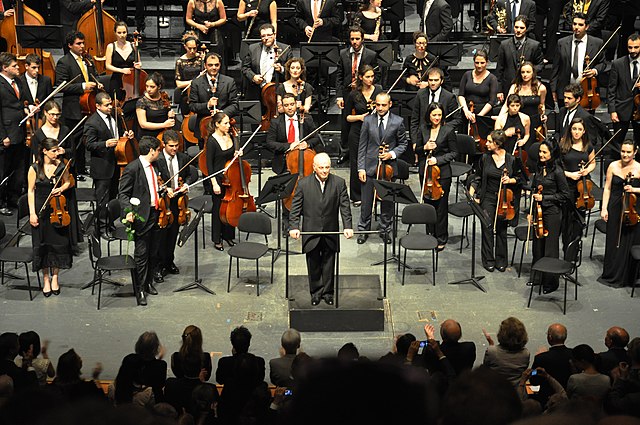The incomparable Ode to Joy symphony of Ludwig van Beethoven was born on this day, 200 years ago, May 7, 1824. He had worked for a proper musical treatment of Friedrich Schiller’s An die Freude for his whole adult life, over 30 years. Beethoven composed three incredible movements, each a complete and monumental work on its own—and then challenged the audience as to what possibly could be missing.
Little recognized is that the Lilliputians of the 1815 Congress of Vienna had thought they had finally defeated Beethoven, with a systematic dumbing down of Europe’s populations; and Beethoven wrote no major works, meant to be performed by large audiences, from 1815 to 1824. Had he disappeared from the scene? His Ninth Symphony, along with his Missa Solemnis, premiered only one month earlier, represented a stupendous “breakout”—in which Beethoven’s capacity for “universal love” conquered the cultural dark age descending upon his world. The power of his love and genius was able to speak not only to his present, problematic generation, but for generations to come.
An important intervention, on behalf of Beethoven’s Ninth, was made today by Daniel Barenboim, the co-founder and conductor of the joint Israeli-Palestine orchestra, the West-Eastern Divan Orchestra. His New York Times article for the occasion argued, in part, that Beethoven was not addicted to political fads: “Instead, he was a deeply political man in the broadest sense of the word. He was concerned with moral behavior and the larger questions of right and wrong affecting all of society.”
Further, and beyond political exegesis upon his Ninth Symphony, Barenboim posed:
“I also see the Ninth in another way. Music on its own does not stand for anything except itself. The greatness of music, and the Ninth Symphony, lies in the richness of its contrasts. Music never just laughs or cries; it always laughs and cries at the same time. Creating unity out of contradictions—that is Beethoven for me.
“Music, if you study it properly, is a lesson for life. There is much we can learn from Beethoven, who was, of course, one of the strongest personalities in the history of music. He is the master of bringing emotion and intellect together. With Beethoven, you must be able to structure your feelings and feel the structure emotionally—a fantastic lesson for life! When we are in love, we lose all sense of discipline. Music doesn’t allow for that.
“But music means different things to different people and sometimes even different things to the same person at different moments. It might be poetic, philosophical, sensual or mathematical, but it must have something to do with the soul. Therefore, it is metaphysical—but the means of expression is purely and exclusively physical: sound. It is precisely this permanent coexistence of metaphysical message through physical means that is the strength of music.
“… By all accounts, Beethoven was courageous, and I find courage an essential quality for the understanding, let alone the performance, of the Ninth. One could paraphrase much of the work of Beethoven in the spirit of Gramsci by saying that suffering is inevitable, but the courage to overcome it renders life worth living.”











